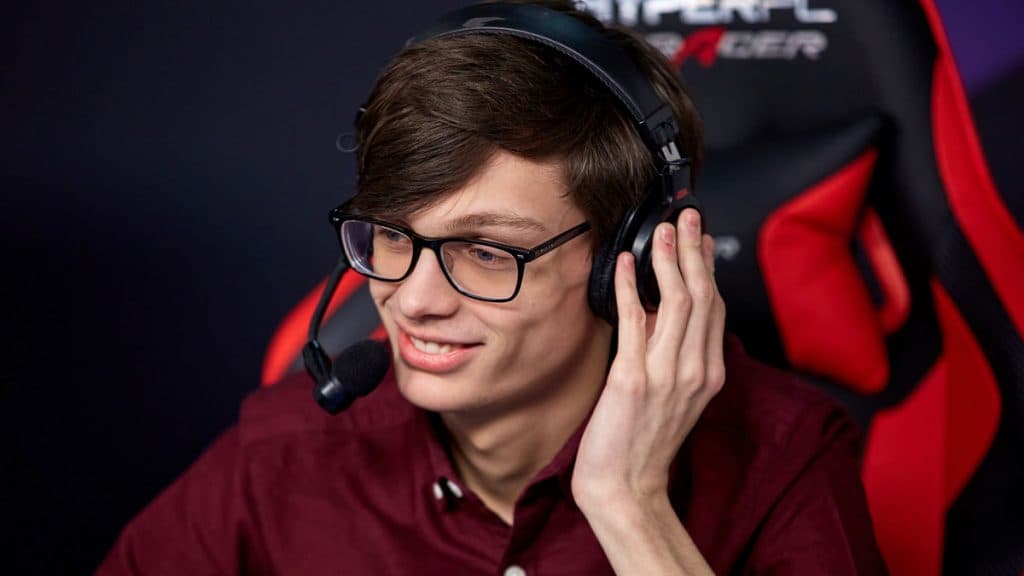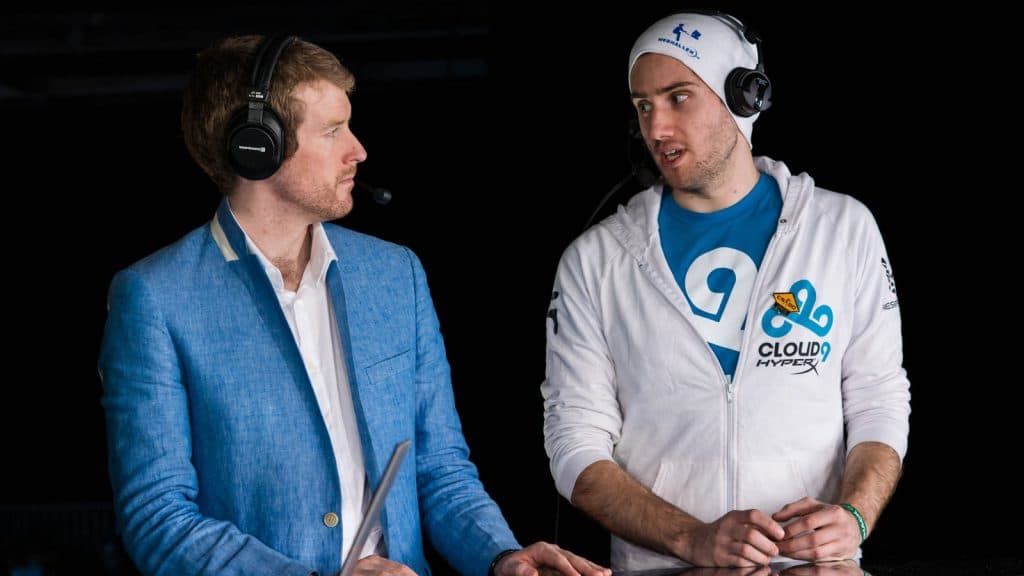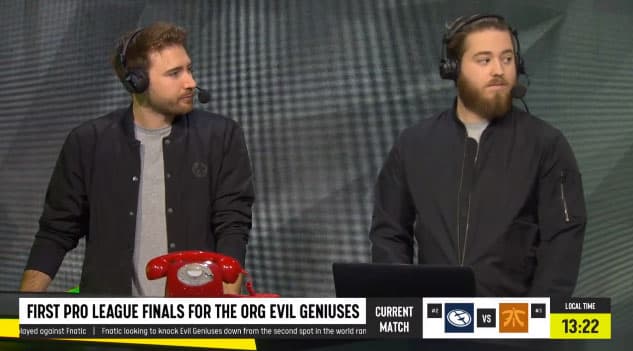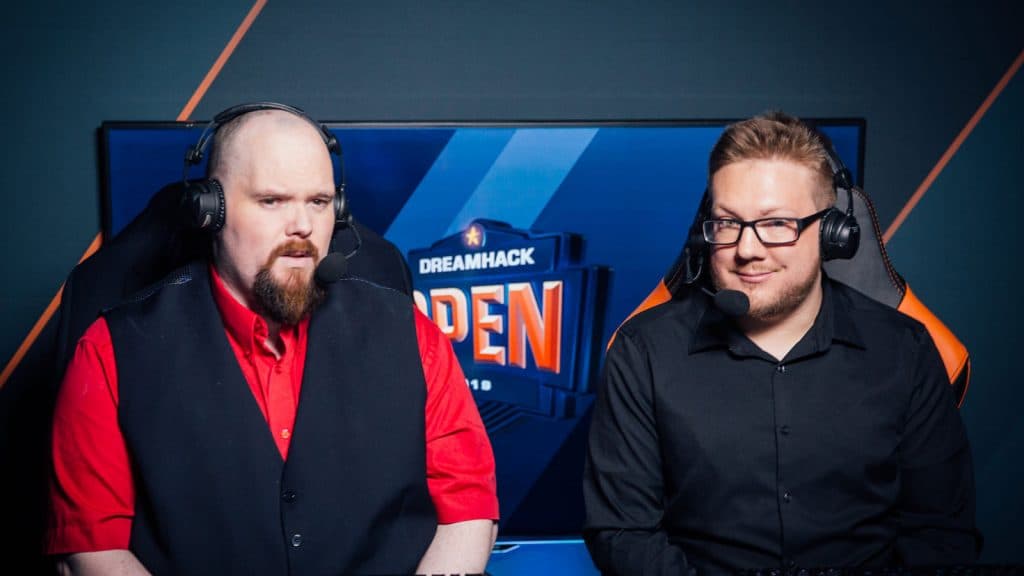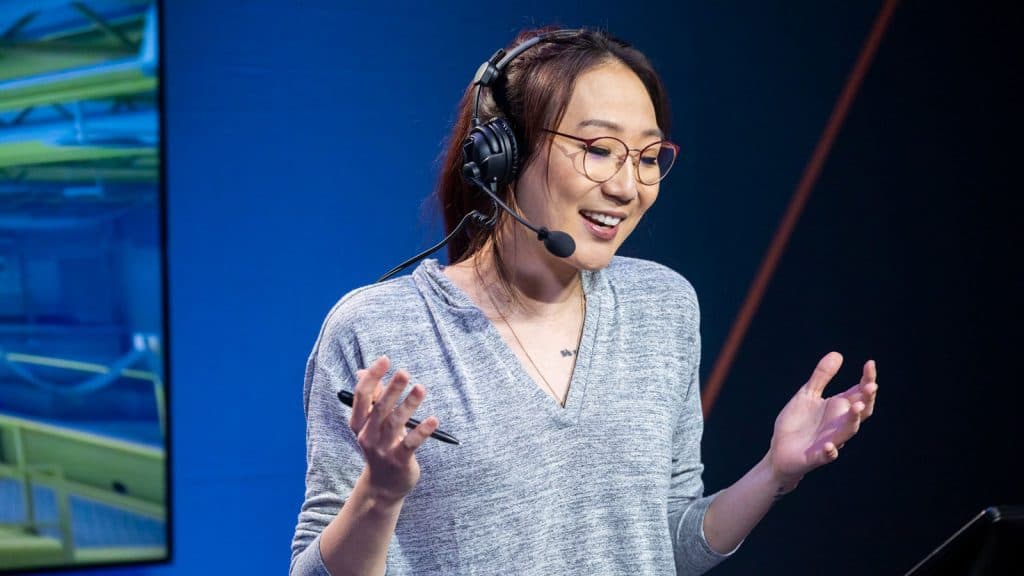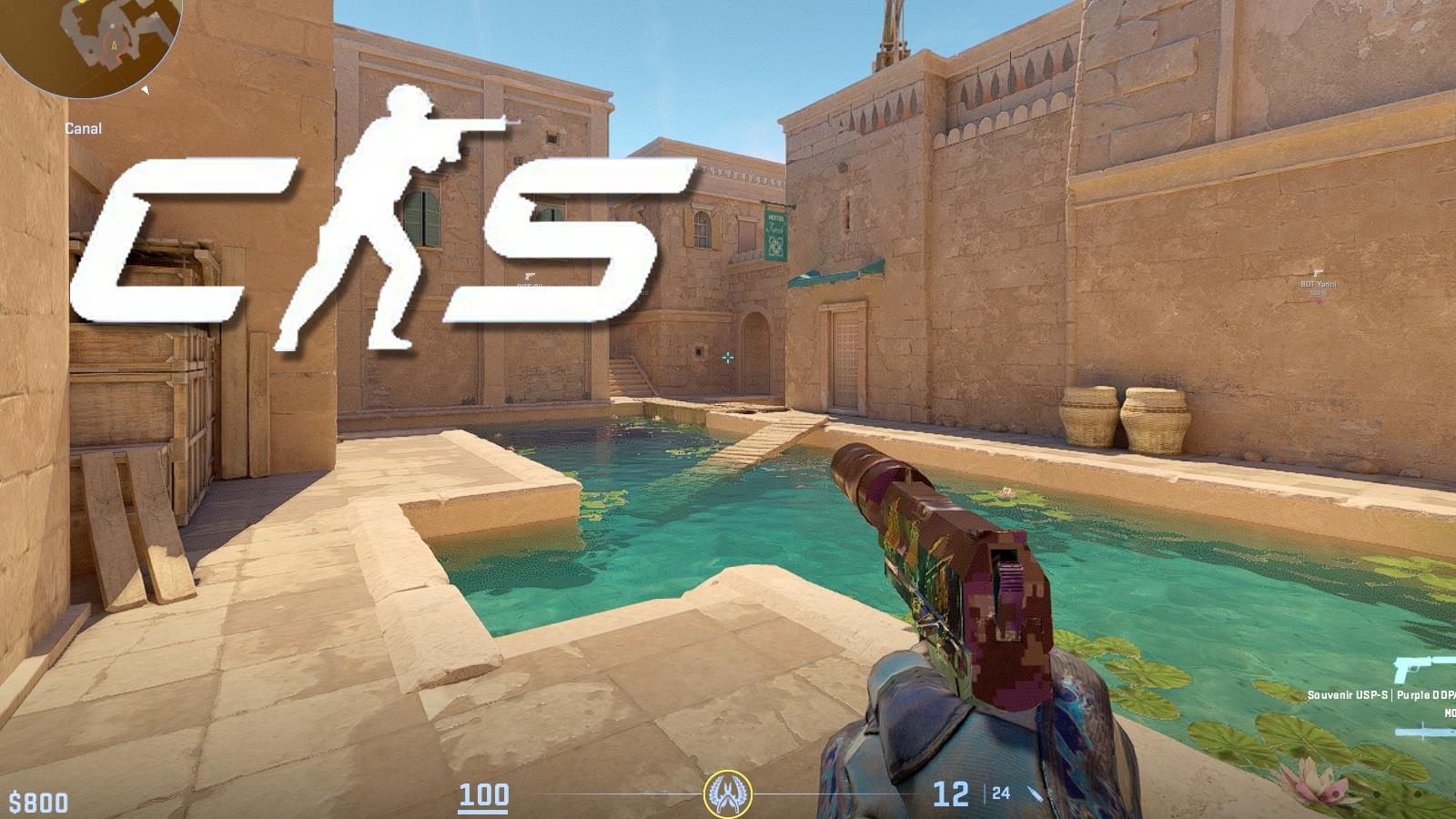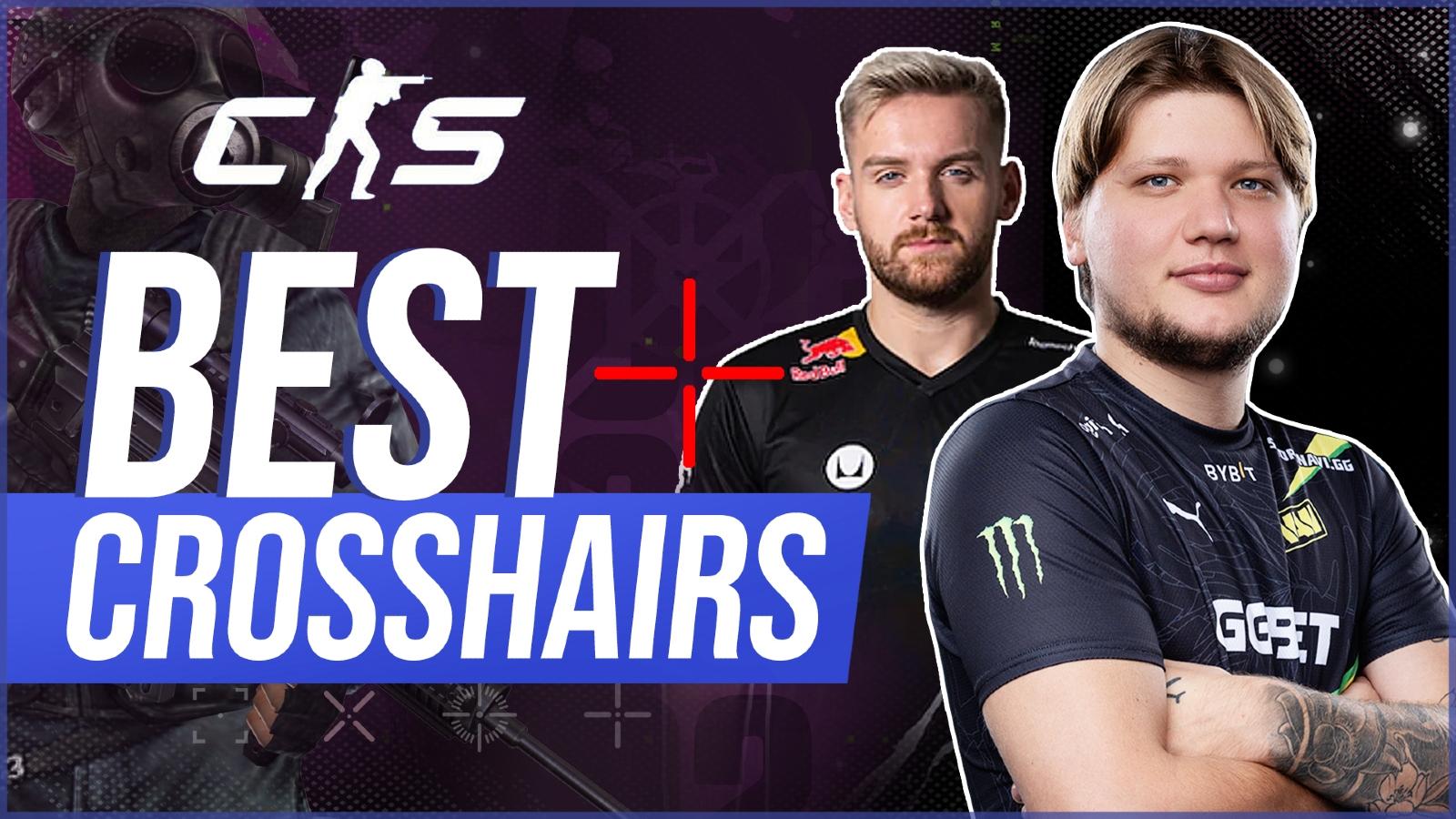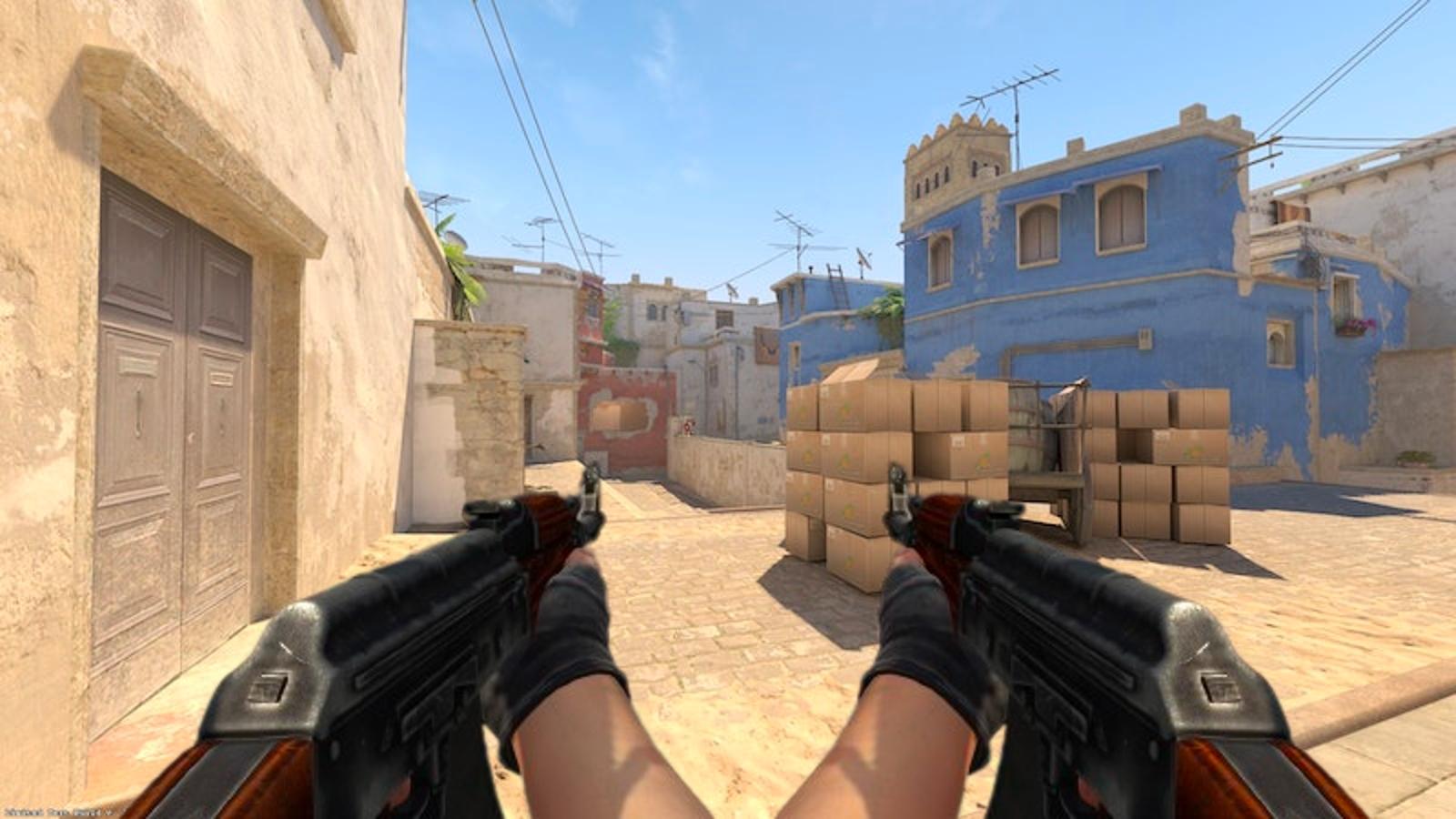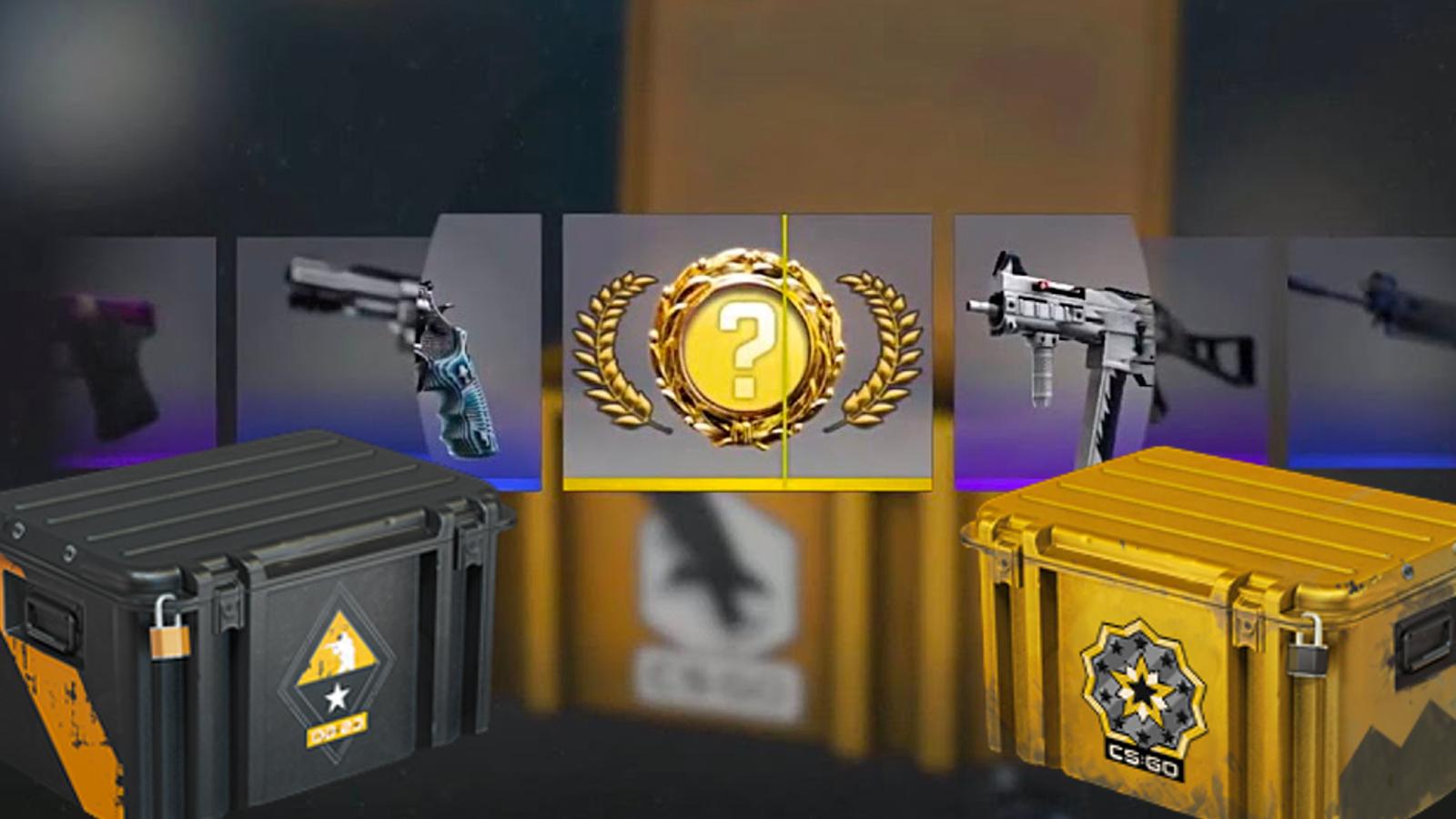Thorin’s Take: Your Next Analyst Desk Talents
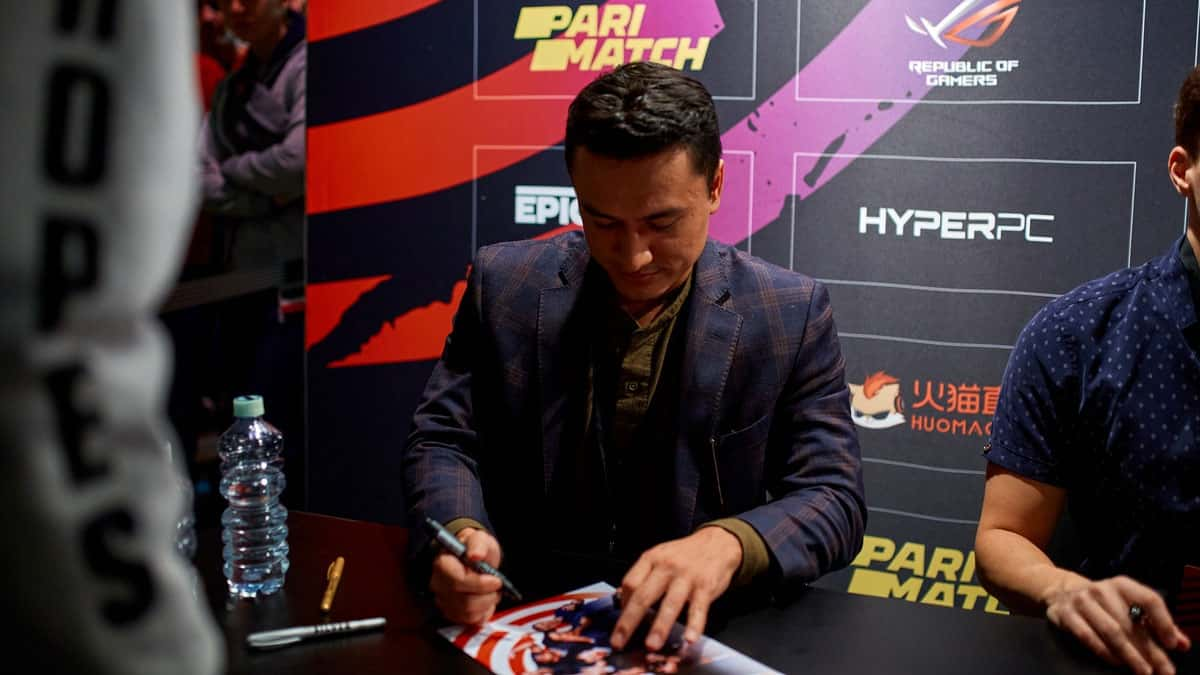
When it comes to the analyst desk of big events, fans can expect to be greeted by the same usual group of names and faces. Beyond the big names, though, the drop-off in the frequency of hires and status within the scene has been noticeable. What’s more, tournament organisers (TOs) seem to struggle for the next names to give an opportunity to or promote to the big leagues, as it were.
You may be forgiven for wondering how these circumstances differ from the commentary world, where there were famously three duos (Anders and Semmler, HenryG and Sadokist and Bardolph and ddk) for so many years. Put simply, two of those duos no longer exist and the Anders and moses duo have on numerous occasions been hired separately. As such, names like launders, scrawny, Harry, Hugo, Vince and pansy have all seen much more time at big events than many may realise, even if the last name on that list is sadly lost to the land of PUBG, for now.
In this piece, I will outline the names and profiles who have the chops to make it at the big events, in certain cases with large gains to be made as they accrue experience at that level and in most cases for cheaper costs than some bigger names but not necessarily better analysts. If you’re a TO then here is your free consultation for talent hires in 2020. Pay heed or see that talent go elsewhere and establish themselves, increasing their day rate by the time you figure out they are a good hire.
[ad name=”article1″]
The lay of the land
Up until a year to a year and a half ago the analysis role was locked down. I’ve worked something in the region of 65 LANs myself, YNk and moses put in a massive amount of work from 2015-2017 and SPUNJ has been a permanent fixture at all the biggest tournaments over the last year and a half, arguably establishing himself as the best in the game. Pimp and Maniac have battled to occupy the spots evacuated by YNk’s shift to full-time coaching and moses’s move to the colour commentary role, but are not quite the automatic hires those names were just yet, despite their skill sets. Still, they are hired to big events and so are not the subject of this piece.
What makes the analyst desk so welcoming to newer talent is that it is a place where a person speaks for only a few minutes at a time, with a host and colleagues who can help cover slip-ups or initial wrinkles. If the individual in question has a strong analytical basis, then the question becomes how they convey themselves on camera and what kind of identity they can craft for themselves.
The latter being arguably the most overlooked aspect of the job, one which I am ever pestering even some big names to pay more attention to since it is a core component of what has brought me so much success in the field.
[ad name=”article2″]
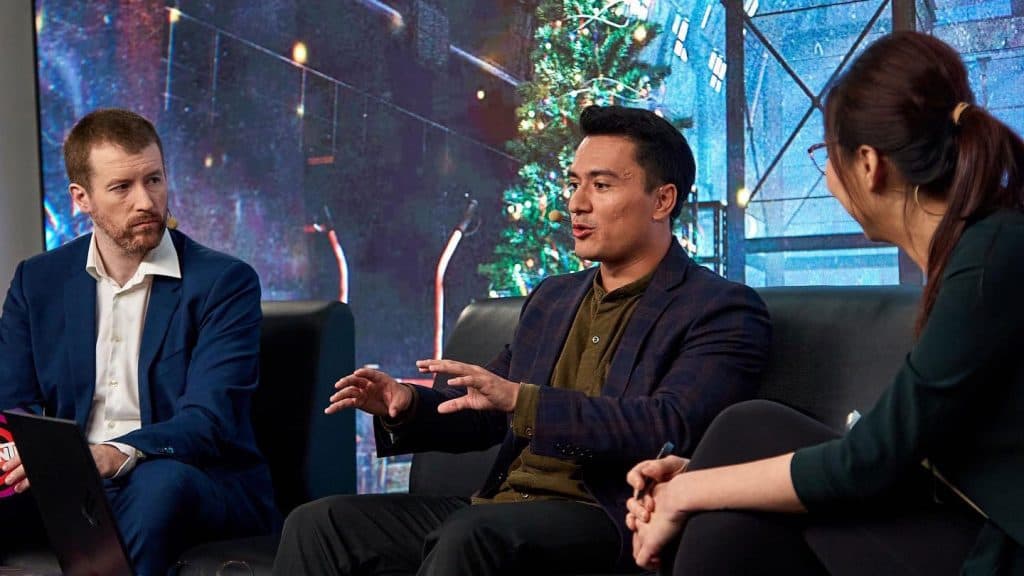
Alex “Mauisnake” Ellenberg – The most promising rookie
Mauisnake is someone I discovered back in late 2017 when I was hiring for research positions. He quickly proved himself both highly knowledgeable about the North American scene, where he has played at the semi-pro level, and surprisingly apt at general analysis of team styles and player strengths.
Known by some for his “Pro Player Analysis” series on his YouTube channel, where he analyses the demo of a pro and explains their strengths and decision-making, Mausinake wields the dual threat of being able to articulate his perspective on known players, having researched their play, and also falling back to the fundamentals of the game, having been a semi-competitive player himself, when discussing players or teams he is not as familiar with.
When I found out EPICENTER were struggling to find a host for their recent Moscow event, I offered to take on the role almost entirely to ensure he got a chance to work a big event, so confident was I that he would deliver. He did not disappoint. At not just his first big event, but his first even vaguely significant offline tournament as an analyst, he was eloquent, capable of generating opinions on request and impressively smooth for a rank rookie.
I know he is most eager to further test himself and make a career of this kind of work too, so TOs would be advised to reach out to him or me in order to secure his services for the year. Give this guy 10 events in the next year or so and he will be known as one of the best in the world by 2021 or 2022.
[ad name=”article3″]
Alex “Hawka” Hawkins – Talent trapped in another role
Hawka is far from a household name, but has been able to work big events, albeit as part of his commentary duo with dinka and primarily on the B stream of said events, which are typically far less viewed. As a commentator, he has been progressing steadily over the last year and a half, but he has shown another aspect to his skillset via his content output on youtube. There, the young Brit has been breaking down specific tactics from top teams in an easily digestible but deep manner.
Hawka does not get hired to the bigger events often, not least since his duo does not have the same status within the community and are competing against an incredibly tenured peer group, so it is his skills as an analyst that I am here to highlight. Had circumstances gone another way, he would have been my analyst at EPICENTER instead of Mauisnake. Here is another individual I was confident could not just do the role, but potentially grow into a more permanent fixture on the desk at notable events.
The 21-year-old has also initially found a workaround for being a young nerd who has yet to develop his personality and professional identity by embracing his inner geek and owning it on broadcasts. Through his content, he has proven his drive to create meaningful analysis for the community and commitment to developing his own skillset and showcasing his analytical abilities. He seems a clear example of a good addition to a talent team being rounded out, after hiring bigger names to anchor it, and especially a name to develop for the future.
[ad name=”article4″]
Kory “SEMPHIS” Friesen – Guns ablazing; exiting playing
SEMPHIS is a name many should know, especially if they followed the competitive scene for the first three years or have seen him in his role as a co-host of the “Peeker’s Advantage” podcast. He has made the playoffs at numerous early CS:GO majors, including a semi-final run at Dreamhack Winter 2013. Known as a supportive element and occasional IGL, as a player he built a reputation with team-mates for exactly the qualities that make him a viable analyst for desks.
Since years back before he was close to a pro competing on top NA teams, SEMPHIS has been a dedicated fan of the game, even participating in forum threads back on the now-deceased-NA-hub GotFrag. As a pro, he has not just studied opponents but top pros throughout the scene. Ask him about a pro and he can tell you their role, their strengths as a player, how they are used within their team and speculate what they might do in another type of team.
As a player, he was notorious for embracing the “scrimmy” style of play NA was infamous for, eschewing the standard meta of buying and positional map play for aggressive pushes and high variance gambles. This is reflected in his analysis, where he is open to new concepts and perspectives on players, even if he has his favourites he will defend to the death, albeit with good reasoning.
SEMPHIS’s playing career hit a slide over the last year or two, but if the tournament is in the right location and at the right time then I’m sure he is open to working desks, as he has inquired about it to me directly in the past. It is naively assumed that most pros could become regular desk analysts, but it’s my experience and opinion that the vast majority are not just incapable of such a role, at least without massive amounts of effort and years of experience, but worse that many are inappropriate hires cynically taken for their name value and the novelty of seeing them still work after their playing careers. SEMPHIS, along with the big name analysts who come from the pro scene, is a rare example of a quality transition from the realm of headshotting.
David “DAVEY” Stafford – The Canadian natural
SEMPHIS’ fellow podcaster, former team-mate and Canadian, DAVEY is a natural to the desk analyst role. Having himself followed the broadcast and content side of the game for years, he has quickly transitioned into someone who understands the role of the analyst as pundit, developing a perspective of their own surrounding the top players and teams which is coherent and has a clear identity uniting it.
The former Splyce pro, who once got smashed at a major, finds humour in the role comes easily to him, can offer concise and more in-depth analysis of players and teams and works well with others, a quality not even all top analysts share. Much like SEMPHIS, he is open to working in the space and his content output has shown his initiative to establish himself as a name people associate with analysis and opinions.
Dustin “dusT” Mouret – Analyst in denial KAPPA
dusT is well known on the tier two and three circuits for his work as a colour commentator, frequently paired with Vince in a duo. I don’t think I am breaking any hearts by stating that I don’t think that duo will ever break into the top tier and be seen at all the tier one events in a year, now or over the years to come. As such, I recommend dust as an analyst both for his skillset and the health of his career in the industry.
dust is an example of an analyst who comes to every tournament with pages and pages of notes on the players and teams he will be covering. In lieu of dedicated statsmen getting a meaningful salary, he can add much to a desk even purely from a statistical or research perspective. As an analyst, he has followed CS:GO since the early days and his work as a commentator has seen him covering more than just his own native scene of NA.
- Read More: MonteCristo open to “exploring” CSGO
dust is not going to set a desk alight with his personality, but a good desk is balanced, for my money, so that one analyst’s strengths cover another’s weaknesses. Put him next to DAVEY or Pimp or SPUNJ and you will find his analysis and thoughts will be given the air to soar.
dust has also shown an admirable dedication to creating content of his own for his youtube channel over years and years in which he has often dipped down again in obscurity, in that regard. If you want one last kicker then consider that he works at Dreamhack events, so you know he isn’t going to break the bank.
Christine “potter” Chi –The Queen of Dreamhack
potter is the most legendary name in female Counter-Strike competition, having won seven world championship level events over most of the 2000s. To call her a pioneer is almost to understate her accomplishments and the tenure of her time in a game that rarely provided enough prize money or salary to earn a good living each year. Over that time span, she is also a good example of a woman who branched out and competed with professional and semi-pro men where she could, earning her stripes in that regard too.
As an analyst, potter broke out in 2018, as a result of being hired to Blast Pro Series tournaments, but 2019 was the year she made her name in the field. Working at six Blast events and an impressive nine Dreamhack tournaments, Potter was largely limited to those two circuits. It is only over the last four months she has been invited to work at bigger events, appearing at Dreamhack Masters Malmö in October and EPICENTER in the latter part of December.
As a former professional who puts in the hours researching the teams she is often tasked with analysing, potter analyses the style of players and teams well and matches that with her perspective on the current meta-game and the fundamentals of the maps. She is at her best citing the win conditions of teams in a match-up, a useful analytical tool for making otherwise deep analysis digestible for even the most casual of fans.
When I was researching her past work for our collaboration at EPICENTER, I noticed potter was still coming into her own as far as comfort on the desk went and ability to riff off others. As such, we discussed what kind of desk flow she preferred and how she wanted to be set-up. From there, I simply had to ask her during games for some of her initial thoughts and then throw her alley-oops near enough to the rim she should dunk them over and over. I think her work at that event stands for itself, but I hope future hosts she has will consider the additional attention given and how it helped open her up in terms of what she was able to get across and her comfort in doing so.
Potter has not lacked for opportunities to work, but she has not been embraced outside of the two circuits cited previously. That could change in 2020 and I hope it will.
Honorable mentions
Once upon a time, I planned to write a piece such as this to outline a bevy of potential future analysts, most of whom you will almost certainly not know for that role. Sadly, many of them lost hope or their drive to progress and have taken a back seat from esports over the last few years.
When I found myself with the opportunity to potentially invite them to work at EPICENTER, an event featuring some of the best teams and players in the world, they were found asleep at their post and as such were passed over. There’s a lesson there for anyone who dreams of making it into a highly competitive industry. As the Roman philosopher Seneca so aptly put it: “Luck is what happens when preparation meets opportunity.”
The host’s prerogative
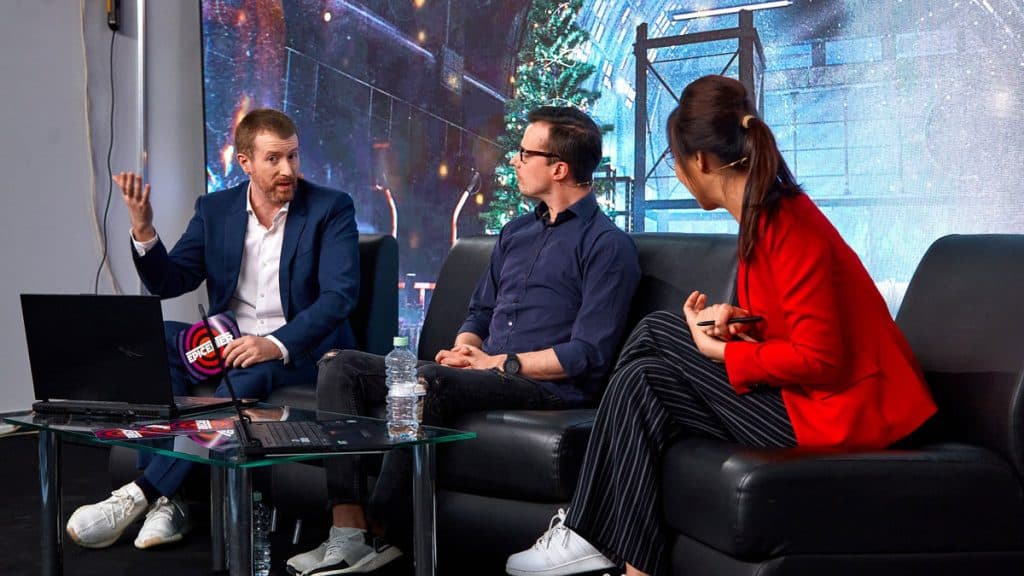
As well as highlighting less well established or known names for the role of analyst, hoping TOs will follow my advice and hire them, I also sought to analyse their skillsets as if they were the players we analyse on the desk. This is because a mixture of the hectic workload of hosts and burnout from constantly traveling has led to a “plug and play” mentality I dislike on desks. If the analyst in question is myself, SPUNJ, Pimp or Maniac, then certainly we don’t need targeted questions or much discourse prior to going on air to get the best out of us. We have our thoughts generally composed and can freely move to them with or without prompting, playing off each other seamlessly.
There are a number of names on this list, though, who are lacking in that regard, for now, and would benefit massively from more directed attention from their host. Watch some of their past work and look at the kinds of circumstances in which they feel comfortable or look out of place. Talk to them during the matches they are watching and make notes of what they want to talk about or some of their initial opinions. Speaking of which, set them up loosely, leading them into that direction and then letting them make their point or state their conclusion. Don’t steal their thunder by revealing the punchline of the joke, as it were.
It’s unlikely you’ll see me often playing the role of good Samaritan by taking on the desk host role, so I hope these words do not fall on deaf ears. A little additional attention from the right hosts will help some of these analysts shine in a manner which will open many eyes and ears to their work.
